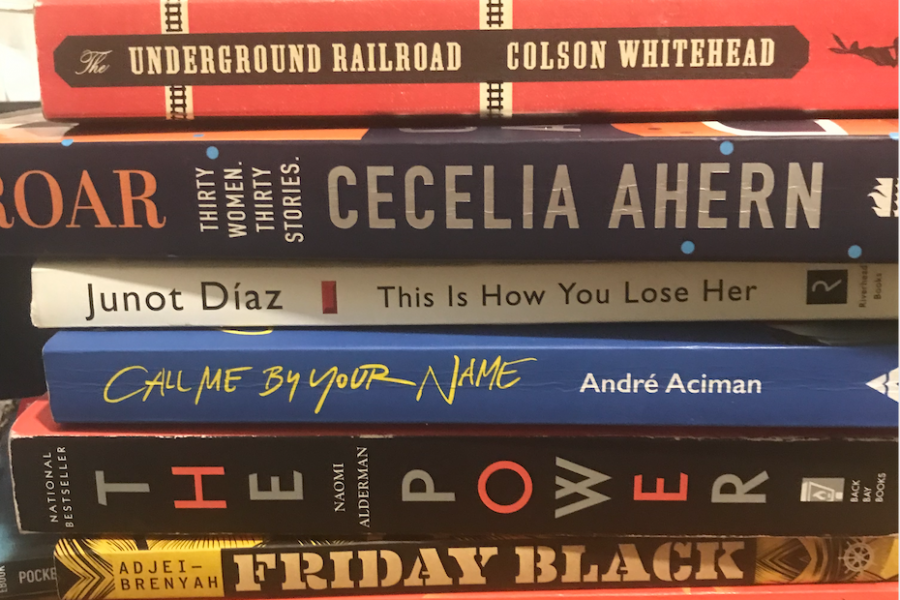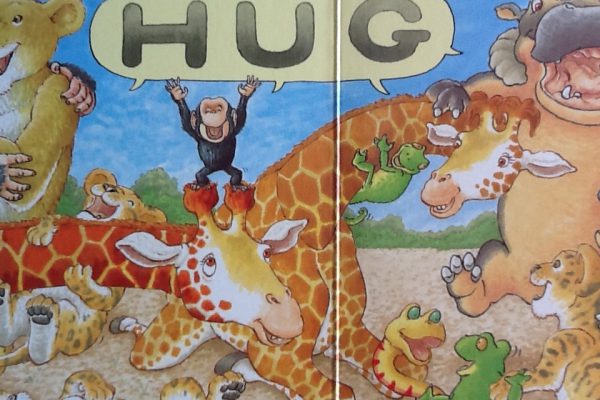
One of my favorite things about lazy summer days is lounging in the sun with a good book. When I was in school summer was the perfect time to catch up on my eternally-long reading list. Now reading is one of my favorite things about a relaxing vacation. My husband and I recently returned from an amazing thirteen days in Greece, during which I read eight books – that’s a great vacation for me! Nothing like relaxing on the beach in Crete, jumping in the sea whenever you get hot, and drying off while reading a book (drinks delivered to you on the beach don’t hurt, either). So, whether you’ve got exotic summer vacation plans or you’ll be hanging at home, now’s the time to dig into those summer reads!
Here are a few of my favorite books I’ve read this summer:
The Great Believers by Rebecca Makkai
This novel chronicles experiences of the gay community during the AIDS epidemic in 1980s Chicago, toggling between the 1980s and present-day. The story is told in two threads, focusing on Yale, who is struggling with losing friends and loved ones while trying to make his name in the art world as a young development professional, and one of his close friends, Fiona, who has lost her brother to AIDS and who is searching for the daughter she’s lost touch with in present-day Paris. I have to admit that I was much more drawn into Yale’s story than Fiona’s, but they’re both engaging and Makkai’s writing keeps the reader invested in this ensemble of characters’ lives.
Friday Black by Nana Kwame Adjei-Brenyah
My friend Eddy, who reads everything, told me this was the best book he read last year (and that’s saying something!) and I can see what he’s talking about. Adjei-Brenyah’s original style of storytelling is funny, captivating, and heart-breaking. These stories show experiences of being a black man in America today with impressive storytelling chops. Well worth the read.
Conscience by Alice Mattison
I was in a workshop with Alice Mattison at the Bennington Writing Seminars and learned to shut up and listen to everything she said. The prolific novelist, also the author of the craft book The Kite and The String, is whip-smart, hilarious, and has a thoughtful way of telling stories. This novel looks back at life in the 1960s anti-Viet Nam movement from characters in the present who’ve tried to escape the youths that colored their lives. An important look at activism, radicalism, and making change in the world.
Homegoing by Yaa Gyasi
This powerful novel chronicles the slave trade across generations, beginning with two half-sisters in colonial Ghana, one who marries the white governor and lives in Cape Coast Castle, and the other who is captured and held in the castle’s dungeons before being forced onto a slave ship to America. The book is a series of connected stories from the perspective of these women’s descendants, showing the long-lasting impacts of slavery and colonialism. Having visited the Cape Coast Castle in Ghana over a decade ago, I found this profound book especially vivid as I could visualize the dungeons, where I remember seeing fingernail scratch marks on the walls. An important read.
Roar by Cecilia Ahern
I’d never heard of this book but found it in the sparse collection of English books in the Istanbul airport and am glad I did. Ahern explores the tropes used to categorize women and the experiences of living as women in the modern world through thirty short stories, all featuring nameless women who are identified by stereotypes. “The Woman Who Disappeared” is about an aging woman who is literally disappearing because society renders women over fifty invisible. “The Woman Who Sat on a Shelf” literally lives on a shelf her husband built but is left out of daily life and given no autonomy and finally has to climb off the shelf herself. “The Woman Who Was Pigeonholed” is put into an actual box based on assumptions about her. Like Colson Whitehead’s The Underground Railroad (see below), Ahern’s stories explore metaphorical traumas through literal manifestations. Ahern’s stories are succinct and moving, often interspersed with her wry humor and wit.
This Is How You Lose Her by Junot Diaz
I recently had a conversation with writer friends about how problematic Junot Diaz is and whether we can still love art and separate it from the flawed people who created it (one friend made the point that she just can’t listen to David Bowie’s music anymore without thinking about his alleged sexual assault of young women and girls). I’m still a little uncomfortable reading Junot Diaz these days, given what we know about the ways he’s treated women (despite investigations clearing him from sexual misconduct, the allegations are still disturbing and I fully understand readers that don’t want to support that kind of behavior by reading his work), and it’s easy to see where his often-misogynistic characters get it from. That said, his voice is witty and sharp and I’ll admit that I enjoyed this linked collection in his signature style.
The Underground Railroad by Colson Whitehead
This one’s been on my list for a while, so I was pleased to find it in the library of the City Circus hostel in Athens. This Pulitzer Prize and National Book Award winner takes a slightly-fantastic view of the Underground Railroad, imagining it as a literal railroad underground that carried runaway slaves to safety. It tells the haunting multi-generational story of women desperate to take control over their lives amidst horrific conditions and circumstances. It was interesting to read this on the heels of Homegoing to see a different aspect of the slave trade.
You can skip Hippie by Paul Coelho and Call Me By Your Name by Andre Aciman (both decently written, if a bit boring, which ended up in my stack as English language books in the Istanbul and Athens airports were slim pickings and I’d chewed through my vacation stack quickly). The Power, which I’d heard a lot of buzz about, is an interesting and enjoyable read, if not necessarily my favorite. I didn’t love Alderman’s writing style, though the concept of women developing physical powers and taking over society is a fascinating one. The message felt a bit redundant to me but it’s important and thought-provoking to consider the shift of power among gender identities.

I’m also taking time this summer to reread a childhood favorite, The Stand by Stephen King. I went through a big Stephen King phase when I was roughly eleven to thirteen, and The Stand was my absolute favorite. I still have the uncut edition (an extra 400 pages, as if the 800-page novel weren’t enough) that my parents gave me for my twelfth birthday, which is barely (sort-of) held together. While scanning my shelves for my next read, I rediscovered this beloved gem and decided to revisit it. Reading it as an adult is definitely a different experience than reading it at twelve and I find myself appreciating King’s sparse and direct style and idiosyncratic voice all the more. The story is an epic battle of good vs. evil, triggered by biochemical warfare, chronicling the journey of an eclectic cast of characters. King’s characterization is original and strong and a good lesson in character development. While King may not fall under the literary fiction category that I typically read these days, summer feels like the perfect time to reread an old favorite.

What are you reading this summer?
Erika Nichols-Frazer is CLiF’s Communications Manager as well as a writer with an MFA in Fiction from the Bennington Writing Seminars. Her work has appeared or is forthcoming in HuffPost, Literary Orphans, OC87 Recovery Diaries, and elsewhere. You can read her blog and learn more about her at nicholsfrazer.com.










